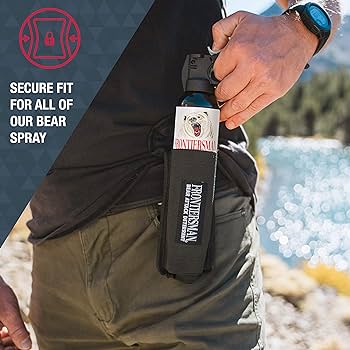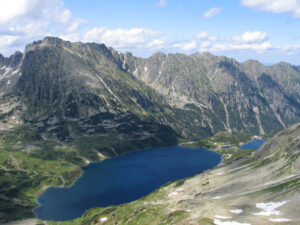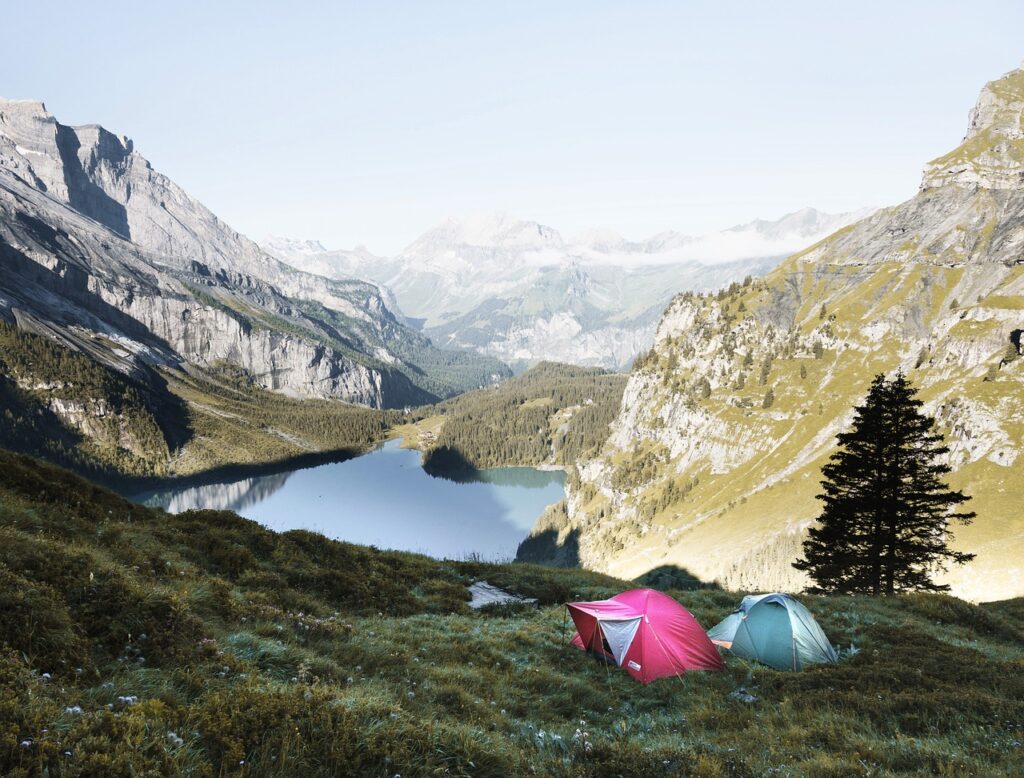Exploring the great outdoors offers an escape unlike any other, but it’s not without its risks. Venturing into the wilderness means stepping into the domain of the wild, where animals reign supreme, and the terrain itself can pose significant challenges. That’s why personal protection for campers is not just advisable; it’s essential. In this extensive guide, we’ll traverse the vital aspects of ensuring safety while camping, from gear to knowledge, ensuring that your adventure remains memorable for all the right reasons.
The Importance of Personal Protection for Campers
When we talk about personal protection for campers, it’s not just about safeguarding against potential threats from wildlife. It encompasses a broad spectrum of measures to ensure our well-being in nature’s unpredictable embrace. The wilderness, while beautiful, is indifferent to our presence. Weather can change swiftly, terrains can be treacherous, and wildlife, though often more scared of us than we are of them, can be unpredictable.
Understanding and respecting the wilderness means preparing adequately for the myriad scenarios. This preparation involves not just physical gear but also mental readiness. Knowing how to react in various situations can mean distinguishing between a minor setback and a life-threatening situation. It’s about equipping ourselves with the tools and knowledge to enjoy the beauty of the wild while minimising risks to our safety.
Safety in the wilderness starts with acknowledging that, while we may visit the outdoors, we are far from its masters. Each step taken into the wild should be done with respect for its inhabitants and the inherent dangers present. Personal protection is not about instilling fear but empowering campers with the confidence to face the wilderness with respect and preparedness.
Essential Personal Protection Gear for Campers
Equipping oneself with the right gear is the first step in personal protection for campers. This gear serves dual purposes: it helps prevent encounters with wildlife and prepares you for any that might occur. A basic personal protection kit for campers should include bear spray for deterring large predators, a sturdy knife for general utility and self-defence if needed, and noise-making devices such as whistles or bells to ward off wildlife.
Another essential piece of gear is proper lighting. A reliable, high-lumen flashlight or headlamp can deter curious creatures and help you navigate in the dark, preventing accidents on uneven terrain. Additionally, investing in quality camping equipment like a strong tent and a sleeping bag suited for the climate you’ll be camping in is crucial. These provide comfort and serve as your first defence against the elements and insects.
Moreover, personal protection gear extends to what you wear. Durable, weather-appropriate clothing and sturdy hiking boots protect against thorns, sharp rocks, and bites or stings. Bright colours can make you more visible to other campers and rescuers in an emergency. Each piece of your gear should be selected with comfort and safety in mind, from your choice of socks to your hat.
Protection from Bears: Tips and Precautions
Bears, majestic as they are, represent one of the primary concerns for campers venturing into areas where they are prevalent. The key to protection from bears lies in prevention and understanding bear behaviour. Although bears typically avoid people, the smell of food or the sight of trash can attract them. Therefore, managing your food and waste properly is paramount. Use bear-proof containers for storing food, and dispose of trash in designated bear-proof bins where available.
Knowing how to react if you encounter a bear is crucial. Never run; this can trigger a bear’s predatory instinct. Instead, speak calmly and firmly, make yourself appear larger by raising your arms, and slowly back away without turning your back on the bear. Bear spray can be an effective deterrent in close encounters. Ensure you know how to use it beforehand and have it readily accessible at all times.
Setting up camp in bear country also requires caution. Avoid areas with fresh bear signs like tracks or droppings, and cook and store food away from your sleeping area. Being aware of wind direction can also help prevent your scent, especially from cooking, from attracting bears to your campsite.
Protection from Mountain Lions: Staying Safe in Their Territory 
Mountain lions, or cougars, are elusive creatures that generally avoid human interaction. However, taking precautions is vital when hiking or camping in their territory. Keep children close and within sight, as mountain lions target individuals who appear more petite and weaker. Make noise as you move through their habitat to avoid surprising them.
In the rare event of a mountain lion encounter, do not run or crouch down, as these actions can trigger an attack. Instead, face the lion, make eye contact, and try to appear larger by raising your arms or opening your jacket. If the lion behaves aggressively, fight back with whatever tools or objects are at your disposal. Unlike bears, fighting back against a mountain lion can convince it that you are not prey.
Protection from Other Wildlife: Snakes, Spiders, and Insects
While bears and mountain lions might capture our attention, campers’ more common wildlife encounters involve smaller creatures like snakes, spiders, and insects. These encounters are often more manageable but require vigilance and preparation. Wearing long pants and boots can protect against bites and stings when walking through grassy or wooded areas. Regularly inspecting and shaking out clothing, sleeping bags, and boots can prevent unwelcome surprises from spiders and insects.
Knowledge of the area’s wildlife can be life-saving. Identifying venomous snakes and spiders enables campers to gauge the severity of a bite and seek appropriate medical attention promptly. Insect repellents and proper netting can reduce the risk of insect bites, protecting against discomfort and diseases transmitted by ticks and mosquitoes.
Personal Protection for Hikers: Safety Precautions on the Trails
 Hikers, in particular, face unique challenges regarding personal protection. The changing terrain, isolated trails, and longer distances from help necessitate specific precautions. Always inform someone of your hiking plans, including your route and expected return time. Carry a map, compass or GPS device, as relying solely on cell phones is risky due to limited service areas in the wilderness.
Hikers, in particular, face unique challenges regarding personal protection. The changing terrain, isolated trails, and longer distances from help necessitate specific precautions. Always inform someone of your hiking plans, including your route and expected return time. Carry a map, compass or GPS device, as relying solely on cell phones is risky due to limited service areas in the wilderness.
In addition to wildlife, hikers must be prepared for environmental hazards. Weather can change abruptly, so carry layers of clothing to adapt to conditions. A basic survival kit, including a fire starter, emergency shelter, and extra food and water, is essential. Lastly, hiking in groups is more enjoyable and safer, and it provides immediate assistance should an emergency arise.
The Role of Self-Defence in Personal Protection for Campers
The concept of self-defence in the wilderness extends beyond the physical confrontations one might envision. It’s about being proactive in avoiding dangerous situations through awareness and preparation. Understanding the behaviour of potential predators and how to deter them is a form of self-defence, as is knowing which plants are safe to touch or consume.
Tools like bear spray and a sturdy knife can be effective for physical self-defence, but they require practice to be used effectively under stress. Self-defence also involves the mental resilience to stay calm and make rational decisions in frightening situations, a skill that can be honed through education and experience.
Essential First Aid Skills Every Camper Should Know
First-aid knowledge is a critical component of personal protection for campers. The ability to respond to injuries, from minor cuts and burns to more severe conditions like hypothermia or heatstroke, can save lives. Enrolling in a wilderness first aid course is highly recommended for anyone who spends significant time outdoors.
Essential first-aid skills include dressing wounds, immobilising fractures, and performing CPR. It is vital to recognise the signs of common wilderness-related health issues, such as dehydration, tick-borne diseases, and altitude sickness. A well-stocked first-aid kit tailored to the specific risks of your destination should accompany you on every camping trip.
Emergency Communication Devices for Personal Protection in the Wild
Traditional means of communication may be unreliable in remote wilderness areas. That’s where emergency communication devices come into play. Devices like satellite phones and personal locator beacons (PLBs) provide a lifeline to the outside world, enabling help to be summoned in emergencies.
Understanding how to use these devices before you need them is crucial. Regularly check batteries and subscriptions (if applicable) to ensure they are ready for use. At the same time, we hope never to use them; having these devices can provide peace of mind to campers and their loved ones.
![]()
Prioritising Personal Protection for a Safe Camping Experience
Embarking on a camping adventure is an exhilarating way to connect with nature, but it comes with inherent risks. Campers can mitigate these risks by prioritising personal protection through preparation, awareness, and the right gear. Remember, the goal is not to fear the wild but to respect it. With respect comes responsibility—the responsibility to protect ourselves, our fellow campers, and the natural environment we enjoy.
As we conclude this comprehensive guide, let us carry forward the message that personal protection for campers is not just about safeguarding our physical well-being. It’s about fostering a harmonious relationship with the wilderness, ensuring it remains a source of wonder and adventure for generations. Stay safe, stay prepared, and let the beauty of the wild inspire your adventures.
The Article Essential Personal Protection for Campers: Stay Safe in the Wild First Appeared ON
: https://ad4sc.com


Comments are closed